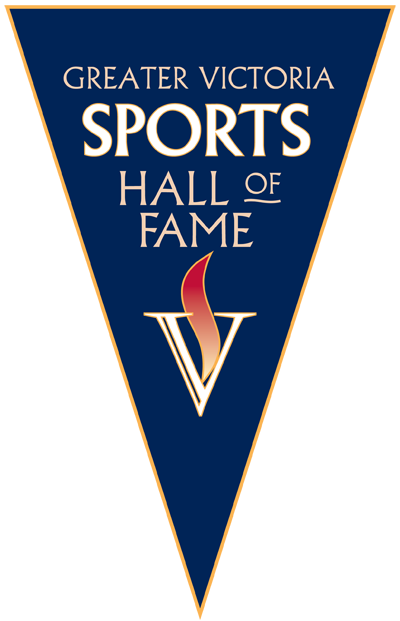Jim was introduced to golf at age 10 and soon proved himself a natural at the game. He played his early days at Cedar Hill Golf Course with Pros Bill Goldsworthy and Bruce Rands and remembers that they were always getting the youngsters out on the course and made sure they were practising. A couple of years later, Jim became a member at Uplands where Don Billsborough was the Pro. Jim credits having access to both courses as crucial to the development of his golf skills, competitiveness and friendships.
By the age of 17, Jim was having success in the Junior ranks, winning the Canadian Junior Championships in 1975 and again in 1977 and even giving the pros a run at such competitions as the Island Open and Cowichan Open. In 1978, at just 18, Jim turned professional himself, attending the Canadian Tour School in Toronto (accompanied by his mother as he was too young to book a hotel or rent a car on his own). By age 19, he had his first important victory when he won the title at the 1979 BC Open at Glen Meadows. In the five-year period from 1978 to 1982, he captured that title two more times, along with three second place finishes.
Jim was introduced to the Asian Tour in 1982 and, for the next eight years, spent 10 weeks in spring in Asia and his summers on the Canadian Tour. In 1984, the Canadian Professional Golf Association Championship led to an invitation to the European Tour. Jim was able to gain exempt status for a period of five years and, with wife Jill and 6-month-old son Ryan, moved to Europe for the duration.
In 1993, Jim returned to the Asian Tour for another eight years, capturing the Indian Open in 1995. He again spent summers on the Canadian Tour where he has six career victories and is second on the all-time money list. Jim qualified for the Nationwide Tour of the PGA in 2000 and his victory at the New Zealand Open in 2006 gained him a card for a season on the American PGA Tour in 2007.
Jim’s successes through the 90s and 00s led to his inclusion in 1993 and 1996 on the three-man Canadian team to the famous Dunhill Cup, billed as the “World Team Championships” and contested by a field of 16 teams on the historic Old Course at St. Andrews, Scotland. He also represented Canada at two World Cup competitions for two-man teams, playing with Rick Gibson in China in 1995 and with Mike Weir in Barbados in 2006.
2011 saw Jim join the Champions Tour for golfers over 50 years of age. With his wife often caddying for him, he continued with the Champions Tour until 2019. Jim has many good memories of time spent with great players and says his many years as a successful golf professional have been a wonderful experience.
Victoria rowers Lindsay Jennerich and Patricia Obee reached the Olympic and World Championship podiums their way, but their Silver medal in the women’s lightweight double skulls at the 2016 Olympic Games in Rio de Janeiro was years in the making.
It all came from humble beginnings. “I came out of the Victoria City Rowing Club to University of Victoria rowing all out of the same boathouse,” Lindsay said. “Elk Lake and that boathouse have been a huge part of my life. I hope I made everybody at the boathouse really proud. I must thank them so much. To have two rowers from the same city and same boathouse on the Olympic podium together is really special and unique.”
An experienced National Team rower, Lindsay had already won World Championship medals with different partners in lightweight double skulls, as well as two World Championships Gold medals in the non-Olympic lightweight single skulls before partnering with Patricia in 2011.
Patricia began rowing in 2009 at the Victoria City Rowing Club and, in 2010, she was selected to the Women’s Eight - Bronze medallists in the Under 23 World Championships. Patricia won World Bronze in the lightweight single skulls in 2011, then moved into lightweight double skulls with Lindsay.
The newly-minted duo won a promising Silver medal at the 2011 World Championships, but failed to make the final at the London 2012 Olympics, winning the B Final to finish seventh overall. Their resolute comeback on the road to Rio took them to the World Championship podium again with a Silver medal in 2014. After narrowly missing the World Championship podium in 2015 with a fourth place finish, Lindsay and Patricia won Gold at the second World Cup stop of 2016 in Lucerne. It was their first World Cup victory together.
Lindsay, who rowed from the bow seat and was the quarterback of the duo, said that every time she asked Patricia to empty her tank, her partner did on courses on rivers, inlets and lakes around the world. Never was that more important than in Rio where, in fifth place at the half-way point of the 2,000-metre final, they put on their patented steely late push to rally for the Silver medal.
The tenacious duo had earned the nickname the Dirty Double, based on their tough and uncompromising style. “We had unwavering belief in ourselves. It was like validation. We were small women, but we knew what we wanted,” Lindsay said. “We were fully committed to each other.”
“It definitely always stays with you and informs who you are. It will always be a part of me,” Patricia said of her rowing career. “I’m very proud to be from Victoria and to be entering my hometown Sports Hall of Fame.”
According to Lindsay, that medal day in Rio was familiar and fitting: “It was gray and raining and we looked at each other and said: ‘Victoria is here with us.’”
